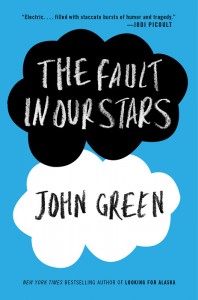 Some Riverside, California school board members are urging a revision of policies on library book selection and challenges after a review committee recently banned John Green’s The Fault in Our Stars from middle schools. The procedures do not appear to be clearly spelled out in current board policy.
Some Riverside, California school board members are urging a revision of policies on library book selection and challenges after a review committee recently banned John Green’s The Fault in Our Stars from middle schools. The procedures do not appear to be clearly spelled out in current board policy.
Although the board does not seem to be considering overturning or at least reviewing the ban of the popular and critically acclaimed novel, some members have expressed surprise that a book could be removed so easily. Board member Tom Hunt admitted this was likely due to a lack of clear procedures, joking that “the fault in our policies is we haven’t looked at them.” Superintendent David Hansen added that the four copies of the book that were in the Frank Augustus Miller Middle School Library had been donated and did not undergo the routine review process before being added to the collection.
In fact, existing school board policies give no indication as to what that process might be. A policy on “Library Resources and Other Instructional Media” which was last reviewed in 1989 says only:
Responsibility for selection of library and other media resources is delegated through the superintendent to the designated professional staff. Review of materials alleged to be inappropriate shall be allowed in accordance with established district rules and regulations.
Another policy on school libraries (also last reviewed in 1989) says that “the District will attempt to provide and maintain adequate school instructional media centers.” No intellectual freedom statement is in evidence in any board policy relating to library materials, but there is a policy on “Prohibited Studies.” (Including an injunction against “instruction advocating or teaching communism”–surprisingly this is not a relic of the 1950s, but was first passed in 1979 and reviewed in 1992.)
In light of these woefully outdated and incomplete policies, we are gratified that the Riverside district at least plans to review them. We hope they will consult the guidelines available from the American Library Association’s Office for Intellectual Freedom and develop a detailed materials selection policy in partnership with district librarians!
We need your help to keep fighting for the right to read! Help support CBLDF’s important First Amendment work by visiting the Rewards Zone, making a donation, or becoming a member of CBLDF!
Contributing Editor Maren Williams is a reference librarian who enjoys free speech and rescue dogs.